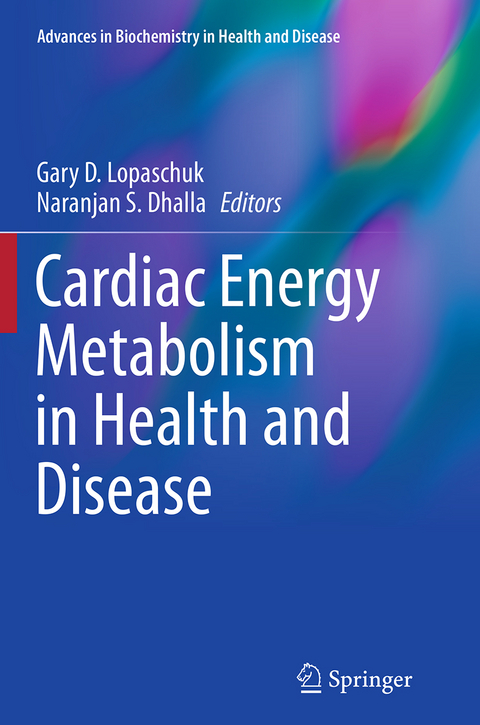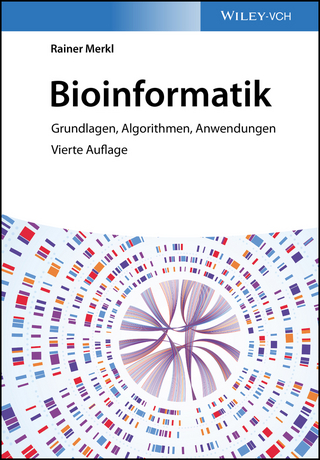
Cardiac Energy Metabolism in Health and Disease
Springer-Verlag New York Inc.
978-1-4939-4879-6 (ISBN)
Cardiac Energy Metabolism in Health and Disease describes the research advances that have been made in understanding what controls cardiac energy metabolism at molecular, transcriptional and physiological levels. It also describes how alterations in energy metabolism contribute to the development of heart dysfunction and how optimization of energy metabolism can be used to treat heart disease. The topics covered include a discussion of the effects of myocardial ischemia, diabetes, obesity, hypertrophy, heart failure, and genetic disorders of mitochondrial oxidative metabolism on cardiac energetics. The treatment of heart disease by optimizing energy metabolism is also discussed, which includes increasing overall energy production as well as increasing the efficiency of energy production and switching energy substrate preference of the heart. This book will be a valuable source of information to graduate students, postdoctoral fellows, and investigators in the field of experimental cardiology as well as biochemists, physiologists, pharmacologists, cardiologists, cardiovascular surgeons and other health professionals.
Dr. Gary Lopaschuk is a Distinguished Professor at the University of Alberta, Edmonton, Canada. His research focuses on the regulatory pathways involved in energy metabolism in the heart, particularly the integrated regulation of fatty acid oxidation and carbohydrate metabolism in the normal, diabetic and the reperfused ischemic heart. He has characterized a number of key enzymes important in the regulation of cardiac fatty acid oxidation and is exploring metabolic strategies to treat heart disease and obesity. Dr. Naranjan Dhalla is a Distinguished Professor at the University of Manitoba, Winnipeg, Canada. His expertise includes the subcellular and molecular basis of heart function in health and disease. He has been engaged over the past 40 years in multidisciplinary research in ischemic heart disease, diabetic cardiomyopathy and heart failure as well as education for promoting scientific basis cardiology and training of professional manpower for combating heart disease.
Part 1. Control of Energy Metabolism.- 1. A Primer on Carbohydrate Metabolism in the Heart.- 2. Lipoproteins: A Source of Cardiac Lipids.- 3. Role of Lipoprotein Lipase in Fatty Acid Delivery to the Heart.- 4. Control of Myocardial Fatty Acid Uptake.- 5. Cardiac Energy Metabolism in Heart Failure Associated with Obesity and Diabetes.- 6. Transcriptional Control of Mitochondrial Biogenesis and Maturation.- 7. Relationship between Substrate Metabolism and Cardiac Efficiency.- 8. Acetylation in the Control of Mitochondrial Metabolism and Integrity.- Part 2. Alteration in Energy Metabolism.- 9. Adrenergic Control of Cardiac Fatty Acid Oxidation in Diabetes.- 10. The Myocardial Creatine Kinase System in the Normal, Ischaemic and Failing Heart.- 11. Fuel Metabolism Plasticity in Pathological Cardiac Hypertrophy and Failure.- 12. Defects in Mitochondrial Oxidative Phosphorylation in Hearts Subjected to Ischemia-Reperfusion Injury.- 13. The Role of AMPK in the Control of Cardiac Hypertrophy.- 14. The Role of Incomplete Fatty Acid Oxidation in the Development of Cardiac Insulin Resistance.- Part 3. Optimization of Energy Metabolism.- 15. Metabolic Therapy for the Ischemic Heart.- 16. Inhibition of Fatty Acid Oxidation to Treat Heart Failure in Patients.- 17. Cardiac Metabolic Protection for the Newborn Heart.- 18. Targeting Transcriptional Control of Fatty Acid Oxidation to Treat Heart Disease.
| Erscheinungsdatum | 14.08.2016 |
|---|---|
| Reihe/Serie | Advances in Biochemistry in Health Disease ; 11 |
| Zusatzinfo | 25 Illustrations, color; 29 Illustrations, black and white; XV, 295 p. 54 illus., 25 illus. in color. |
| Verlagsort | New York |
| Sprache | englisch |
| Maße | 155 x 235 mm |
| Themenwelt | Mathematik / Informatik ► Informatik ► Theorie / Studium |
| Informatik ► Weitere Themen ► Bioinformatik | |
| Medizinische Fachgebiete ► Innere Medizin ► Kardiologie / Angiologie | |
| Naturwissenschaften ► Biologie ► Biochemie | |
| Naturwissenschaften ► Biologie ► Zellbiologie | |
| Schlagworte | Cardiac energy metabolism • Cardiac Ischemia • cardiomyopathy • Fatty acid oxidation • mitochondrial function |
| ISBN-10 | 1-4939-4879-2 / 1493948792 |
| ISBN-13 | 978-1-4939-4879-6 / 9781493948796 |
| Zustand | Neuware |
| Haben Sie eine Frage zum Produkt? |
aus dem Bereich


